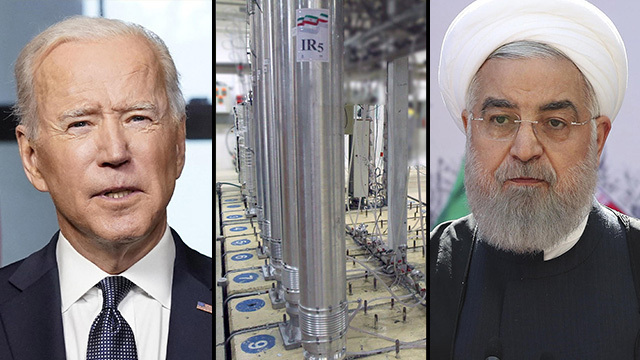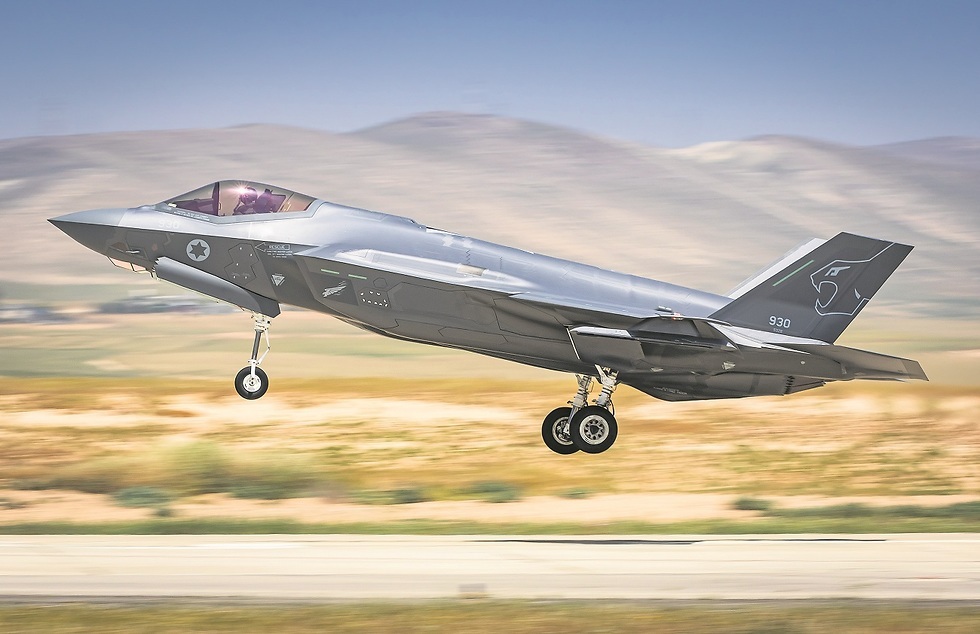Getting your Trinity Audio player ready...
In the last decade, Iran has been the source of 80% of Israel's security problems.
Besides the Lebanese terror group Hezbollah, which is under Iranian control, there are at least four other Iran-backed threats facing Israel.
The first one is Iran's attempt to establish a Hezbollah-like military force in Syria; the second is its attempts to conduct cyberattacks on Israeli targets; the third is its ability to strike the Jewish state with cruise missiles and armed drones that could come from Syria, Iraq, and Yemen; and the fourth - and biggest - threat is the potential to very soon produce nuclear weapons.
A decade ago, Israel reached the ability to carry out an attack on Iranian nuclear facilities. Former Prime Minister Benjamin Netanyahu estimated at the time that an Israeli attack was possible and even necessary. Netanyahu assumed that if Iran were to attack Israel in return, U.S. forces would join the battle.
For various reasons, Israel eventually avoided launching such a strike, and the plan to attack Iran went into a deep freeze in 2013. Also, once the world powers signed a nuclear agreement with Iran in 2015, it became clear that an Israeli attack is inconceivable.
Fast forward to 2021 - the nuclear agreement is dead in the water and despite the two sides' proposal to rejoin the treaty, the gap between the U.S. and Iran seems unbridgeable.
3 View gallery


U.S. President Joe Biden, Iran's President Ebrahim Raisi, and a uranium facility
(Photo: EPA, AFP)
Iran insists on three things as conditions for returning to the 2015 deal: lifting of all U.S. sanctions unconditionally; all the technology and uranium obtained by the Islamic Republic so far will remain in their possession; and thirdly, even though the agreement has been frozen for a few years ago, Iran wants that time to be counted as them adhering to the deal's obligations (in other words, if it agreed to maintain certain curbs for five years, those five have technically passed, even though the nuclear deal has been kept on ice).
U.S. President Joe Biden and his administration tend to compromise on many issues, but in this case, it seems like they are unwilling to submit to Iran's harsh demands. In my opinion, the chances of no new agreement at all are greater than the chances of these disputes being resolved.
This brings us back to 2011 when International Atomic Energy Agency (IAEA) reported that Iran had been conducting experiments aimed at developing a nuclear weapon. But in 2021, that's not the only threat Iran is capable of producing, and it requires Israel to be prepared for at least two scenarios for an open and direct military conflict with Iran.
The first scenario is a direct attack on Israel with cruise missiles and armed drones operated by Iran or militias under its rule. This kind of attack was carried out two years ago against the Saudi oil infrastructure, which paralyzed it, although not for long. And even though Israel has better defensive capabilities than Saudi Arabia, such an attack by Iran would likely require an Israeli retaliation on Iran's soil.
The second scenario involves Israel attacking Iran's nuclear facilities if the Iranian regime violates the nuclear agreement, if it is brought back to life, or simply begins accelerating toward a nuclear bomb.
The importance of the ability to perform such is great in order to show the international community that the threat of an Israeli strike is real. As a result, they might try harder to reach an agreement that will keep Israel safe, or harden the sanctions against the Islamic Republic or even prepare their own military options.
One of the reasons Iran allows itself to be so brazen with the U.S. is the bitter fact that Washington has not yet proven that it also has a credible military option.
The chances of a direct military confrontation between Israel and Iran, or even between Israel and Hezbollah, are still slim. But Israel has no choice but to improve both its defense and attack capabilities - including its cyber units.
The paralysis of Iran's gas stations earlier this week may indicate that Israel is not neglecting this vital area of operations.



